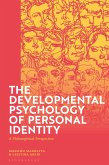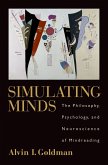The Peripheral Mind introduces a novel approach to a wide range of issues in the philosophy of mind by shifting the focus of analysis from the brain to the Peripheral Nervous System (PNS). Contemporary philosophy of mind has neglected the potential significance of the PNS and has implicitly assumed that, ultimately, sensory and perceptual experience comes together in the brain. Istv?n Aranyosi proposes a philosophical hypothesis according to which peripheral processes are considered as constitutive of sensory states rather than merely as causal contributors to them. Part of the motivation for the project is explained in the autobiographical opening chapter, which describes the author's subjective experiences with severe peripheral nerve damage. Although Aranyosi's approach could be classified as part of the current "embodied mind" paradigm in the philosophy of mind and cognitive neuroscience, this is the first time that notions like "embodiment" and "body" in general are replaced by the more focused concept of the PNS. Aranyosi puts the hypothesis to the test and offers novel solutions to puzzles related to physicalism, functionalism, mental content, embodiment, the extended mind hypothesis, tactile-proprioceptive illusions, as well as to some problems in neuroethics, such as abortion and requests for amputation of healthy body parts. The diversity of the volume's methodology--which results from a combination of conceptual analysis, discussion of neuroscientific data, philosophical speculation, and first-person phenomenological accounts--makes the book both engaging and highly informative.
Dieser Download kann aus rechtlichen Gründen nur mit Rechnungsadresse in A, B, BG, CY, CZ, D, DK, EW, E, FIN, F, GR, HR, H, IRL, I, LT, L, LR, M, NL, PL, P, R, S, SLO, SK ausgeliefert werden.









